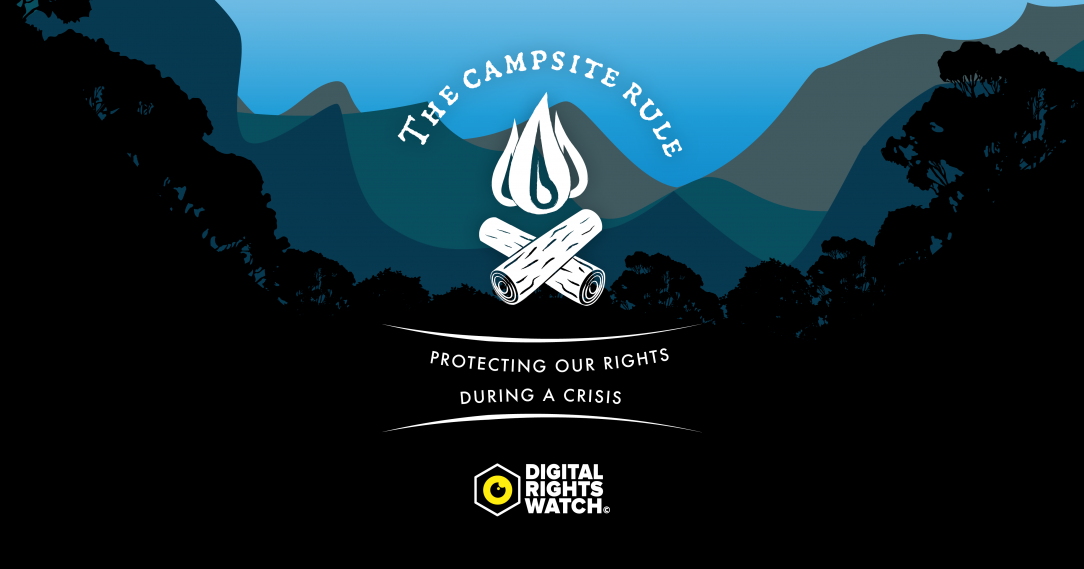When you visit a campsite, we all know the right thing to do is to leave it better than we found it.
The same rule should apply to our rights in a crisis.
During times like these, we often see governments rush through additional powers for themselves, or law enforcement and intelligence. Many of them put human rights at risk, and these powers are rarely wound back once we return to relative calm.
On 17 June 2020, Digital Rights Watch Chair, Lizzie O’Shea, was joined by former Greens Senator and digital spokesperson Scott Ludlam, Cryptographer Vanessa Teague and Senior Law Lecturer Dr Heron Loban for a wide-ranging online discussion exploring the risks of government overreach in times of crisis.
In this event, panelists explored the human rights issues that arise in times of emergency. While the conversation included many topics and drew on examples spanning decades, the focus often returned to the two current crises we are currently all living through: the coronavirus pandemic, as well as the Black Lives Matter movement, including systemic racism and the government response to protests.
Just some of the big questions posed to our speakers included: how do we balance a need for swift action with appropriate transparency and consideration of human rights? How can civil society be effective in creating meaningful change, and influence politicians and policymakers to make better technical decisions? And when we consider implementing a technological response, how can we ensure that the solutions are not creating even bigger problems down the line?
A running theme of the discussion highlighted the double-edged nature of technology. While it can be profoundly useful as a tool to create change, demand justice and increase accountability, it can also impinge on human rights, create detrimental consequences, and cause immense harm. In Australia, negative consequences of technical ‘solutions’ disproportionately impact Aboriginal and Torres Strait Islander people. Tune into the event recording below to hear the panelists explore the technical and legal considerations that need to be made early, and how civil society groups, the tech community, and the public, can work together to uphold human rights during any crisis.
This conversation took place in the aftermath of yet more abuses of power and violent acts of police brutality against Black people in the US and across the world. Here in Australia, First Nations communities continue to be subjected to horrific levels of over-policing, violence, incarceration and deaths in custody. Responses to crises, particularly technological responses such as increased systems of surveillance, all too easily exacerbate oppression and injustice. Our most vulnerable communities suffer the impacts of these changes sooner and harder than everyone else.
Our fundamental rights are never more important than they are during a crisis, it’s when they’re under the most strain and when they most need protection.
You can watch the recording of the event below.

